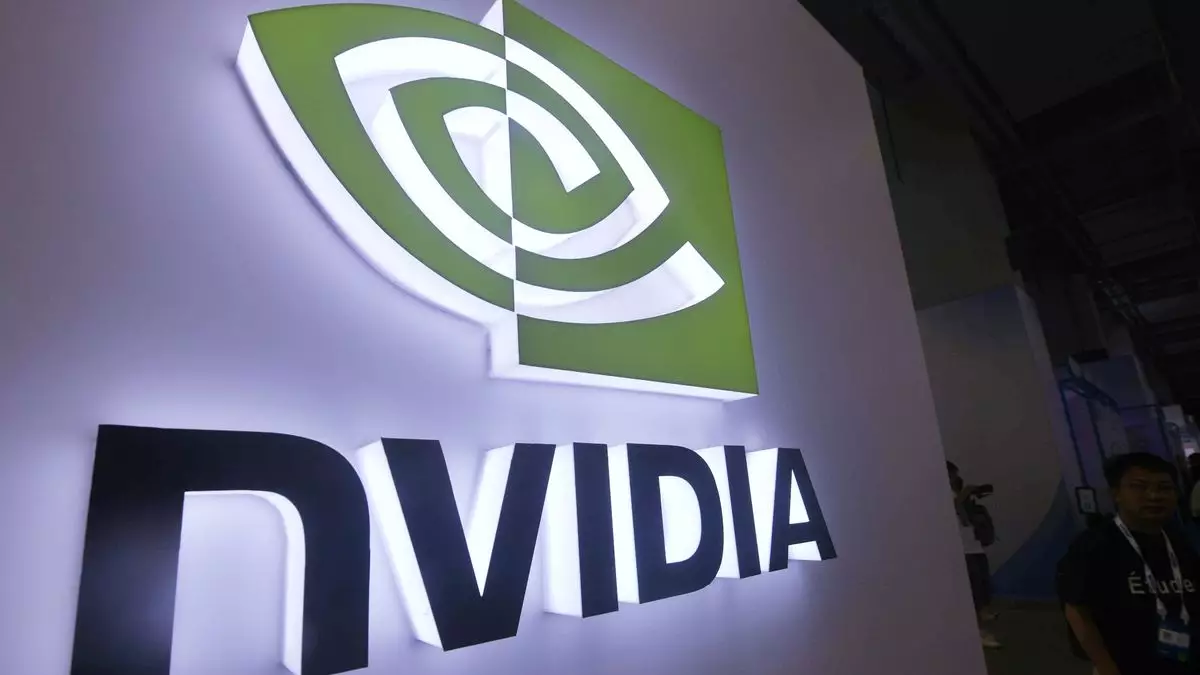In a move sparking significant concern within the tech community, China has initiated an antitrust investigation into Nvidia, the formidable US semiconductor company renowned for its cutting-edge GPU technology. This inquiry pertains to Nvidia’s $7 billion acquisition of Israeli chip manufacturer Mellanox Technologies in 2020, a deal that Chinese authorities sanctioned under specific stipulations. The Chinese government had mandated that Nvidia would not engage in discriminatory practices against Chinese entities and required Mellanox to provide competing firms with new product samples within a 90-day window post-release. Such conditions were established to ensure that domestic companies could maintain a competitive edge in the market.
However, the nuances surrounding the investigation have not been publicly detailed, raising eyebrows about the broader geopolitical implications at play. The conditions tied to the acquisition reflected an awareness among Chinese regulators about the increasing dominance of foreign technology firms and their potential impacts on local competition. This initiative is not only an effort to protect domestic markets but also a reaction to the ongoing sanctions and restrictions imposed by the United States that limit Nvidia’s operational capabilities within China.
The investigation occurs against the backdrop of stringent US export controls targeting Nvidia’s products intended for the Chinese market. These limitations have forced Nvidia to pivot its strategies, including the introduction of tailored products like the RTX 4090 D, specifically designed to circumvent export restrictions. Released in response to a 2023 government decree barring RTX 4090 GPUs from being sold to China, the RTX 4090 D represents Nvidia’s attempt to retain market access while adhering to US regulations. This maneuver, however, drew sharp criticism from US officials, culminating in statements from US Commerce Secretary Gina Raimondo discouraging any attempts to sidestep export rules.
The dichotomy of Nvidia’s actions highlights the intricate balancing act technology companies must perform in navigating the landscapes of competing global interests. While the US government alleges national security concerns as a justification for stringent controls, firms like Nvidia have argued that their innovations are essential to a number of economic sectors and that restricting them could hinder progress and competitiveness.
The competitive landscape for Nvidia in China appears to be rapidly changing, with domestic firms emerging as formidable rivals. According to reports, Nvidia’s revenue from China fell to 17% of its total earnings in 2024, down from 26% just two years prior. This shrinking market share underscores the increasing capabilities of local chip manufacturers, which have been racing to develop their own technologies amidst rising barriers to entry for foreign competitors.
This shift is notable given that China has invested heavily in bolstering its domestic semiconductor capabilities over the past few years, with governmental support shaping the burgeoning industry. Such developments signal a critical juncture for Nvidia as it grapples not only with regulatory pressures but also with heightened competition that could redefine its market position in one of its most significant revenue streams.
China’s investigation into Nvidia is emblematic of a larger trend in international relations, reflecting the mounting frictions between the United States and China in technology and trade sectors. This scrutiny follows a recent wave of US sanctions on Chinese technology companies and critical semiconductor manufacturing equipment, prompting retaliatory actions from Beijing, including bans on various materials integral to semiconductor production. Such measures, including prohibitions on gallium and germanium, indicate a strategic pivot to develop self-sufficiency in core technological sectors and signal a response to perceived threats in the global tech arena.
As Nvidia navigates this investigation, the company’s assertion of operating “on merit” faces critical scrutiny in the context of national policies that increasingly intertwine commerce and geopolitical strategy. Given the complexities of the current global landscape, the outcome of this investigation could significantly alter the future dynamics of technology trade between the US and China, forcing all parties to reevaluate their strategies within an ever-evolving environment of competition and regulation.
China’s antitrust investigation into Nvidia serves as a fascinating case study of the interplay between regulation, competition, and international tensions within the tech industry. The ramifications of this situation extend well beyond Nvidia, posing critical questions about the future of technology collaboration and competition in an age shaped by nationalism and strategic interests. As the global semiconductor industry continues to evolve, so too will the frameworks within which companies operate, necessitating agility, foresight, and adaptability to navigate the unfolding landscape.

